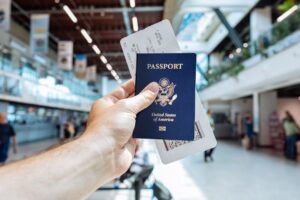Choosing the right Brazilian visa can feel overwhelming, especially with so many types and complex requirements. Many applicants face uncertainty and stress, unsure which visa fits their situation or how to avoid costly mistakes. This guide provides clear, expert-backed insights and real-life examples to help you confidently navigate your Brazilian visa options.
Without the right information, delays or refusals can disrupt your plans to live, work, or study in Brazil. We’ll walk you through common visa categories, illustrate how different scenarios affect your choice, and highlight key legal tips to streamline your application.
By the end, you’ll understand how to select the correct visa and prepare your documents with confidence — all based on certified Brazilian immigration lawyer expertise and practical case studies.
Overview of Brazilian Visa Types and Their Purposes
Brazil offers various visa categories tailored to different purposes. Understanding each type’s intent is essential to identify the best fit for your situation.
- Tourist Visa: For short stays related to tourism or family visits.
- Work Visa: For foreign nationals employed by Brazilian companies or transferred internally.
- Student Visa: For those enrolled in Brazilian educational institutions.
- Family Reunion Visa: For joining relatives who are Brazilian citizens or residents.
- Permanent Visa: For long-term residency based on investment, marriage, or other criteria.
Each visa type has specific eligibility criteria and documentation requirements. Consult the official Brazilian visa requirements to verify details and updates.
Real-World Scenarios Illustrating Visa Selection
Visa choice depends heavily on your personal circumstances. Here are anonymized examples that demonstrate how different profiles determine the appropriate visa:
- Scenario 1: A software engineer relocating for a job offer from a Brazilian tech company requires a work visa with employer sponsorship.
- Scenario 2: A university student accepted into a Brazilian language program must apply for a student visa, including proof of enrollment and financial means.
- Scenario 3: An individual married to a Brazilian citizen is eligible for a family reunion visa, which leads to permanent residency options.
- Scenario 4: An entrepreneur investing in a Brazilian business can pursue a permanent visa based on investment criteria.
These examples highlight why a tailored assessment is crucial — one size does not fit all.
Common Application Pitfalls and Legal Tips
Many applicants encounter avoidable issues that cause delays or denials. Awareness and expert guidance can prevent these common pitfalls:
- Incomplete or incorrect documentation: Missing translations or notarizations can invalidate your application.
- Misunderstanding visa eligibility: Applying for the wrong visa type wastes time and resources.
- Ignoring legal requirements: Some visas require proof of financial stability or a clean criminal record verified through official channels.
- Failure to meet deadlines: Timely submission is critical, as late applications are often rejected.
Outvisa’s team of certified Brazilian immigration lawyers offers personalized eligibility assessments and legal consultation to navigate these complexities and ensure compliance.
Document Preparation and Translation Essentials
Proper preparation and accurate translation of documents are vital steps in your visa application process. Here’s what you need to know:
- All documents not in Portuguese must be translated by a sworn translator recognized by Brazilian authorities.
- Documents often require notarization and legalization to be accepted by Brazilian consulates.
- Common required documents include valid passport, proof of purpose (work contract, enrollment letter), financial statements, and police clearance certificates.
Consult the official document guidelines for your visa type.
Outvisa provides expert visa assistance and document review services to ensure your paperwork meets all formal requirements and avoids common errors.
Tips and Checklist for a Successful Brazilian Visa Application
- Verify your visa type matches your purpose of stay before applying.
- Gather all required documents in original and translated forms.
- Have documents notarized and legalized as per Brazilian consulate instructions.
- Double-check application forms for accuracy and completeness.
- Submit your application well before your intended travel date to allow for processing.
- Maintain copies of all submissions and correspondence.
- Consult with a certified immigration lawyer if your case involves complex legal issues.
Frequently Asked Questions
Which Brazilian visa is best for employment purposes?
The work visa is designed for individuals with a job offer from a Brazilian employer. It requires employer sponsorship and specific documentation proving the employment relationship. Outvisa offers expert guidance to ensure your application meets all legal requirements.
Can I switch visa types after arriving in Brazil?
Changing visa status within Brazil can be complex and depends on your current visa type and circumstances. Consulting with immigration experts like Outvisa is recommended to explore legal pathways and avoid violations.
What documents need to be translated for a Brazilian visa?
All documents not originally in Portuguese must be translated by an official sworn translator. This includes birth certificates, police clearances, and financial documents. Outvisa can assist in verifying your documentation to meet consulate standards.
How long does the Brazilian visa application process take?
Processing times vary depending on visa type and consulate workload. Applying early and ensuring complete documentation helps prevent delays. Outvisa’s review services help streamline your application to avoid common setbacks.
Is legal consultation necessary for a Brazilian visa application?
While not mandatory, legal consultation is highly recommended for complex cases or when eligibility criteria are unclear. Outvisa’s certified Brazilian immigration lawyers provide personalized assessments to enhance your chances of approval.
Conclusion
Understanding which Brazilian visa suits your unique situation is essential to a smooth application process. This guide has provided clear explanations of visa types, real-world scenarios, common pitfalls, and document preparation essentials—all backed by certified legal expertise.
By following these steps and leveraging professional assistance, you can navigate Brazil’s visa system with confidence and avoid costly errors.
Reach out to us for personalized consultation based on your specific requirements.







